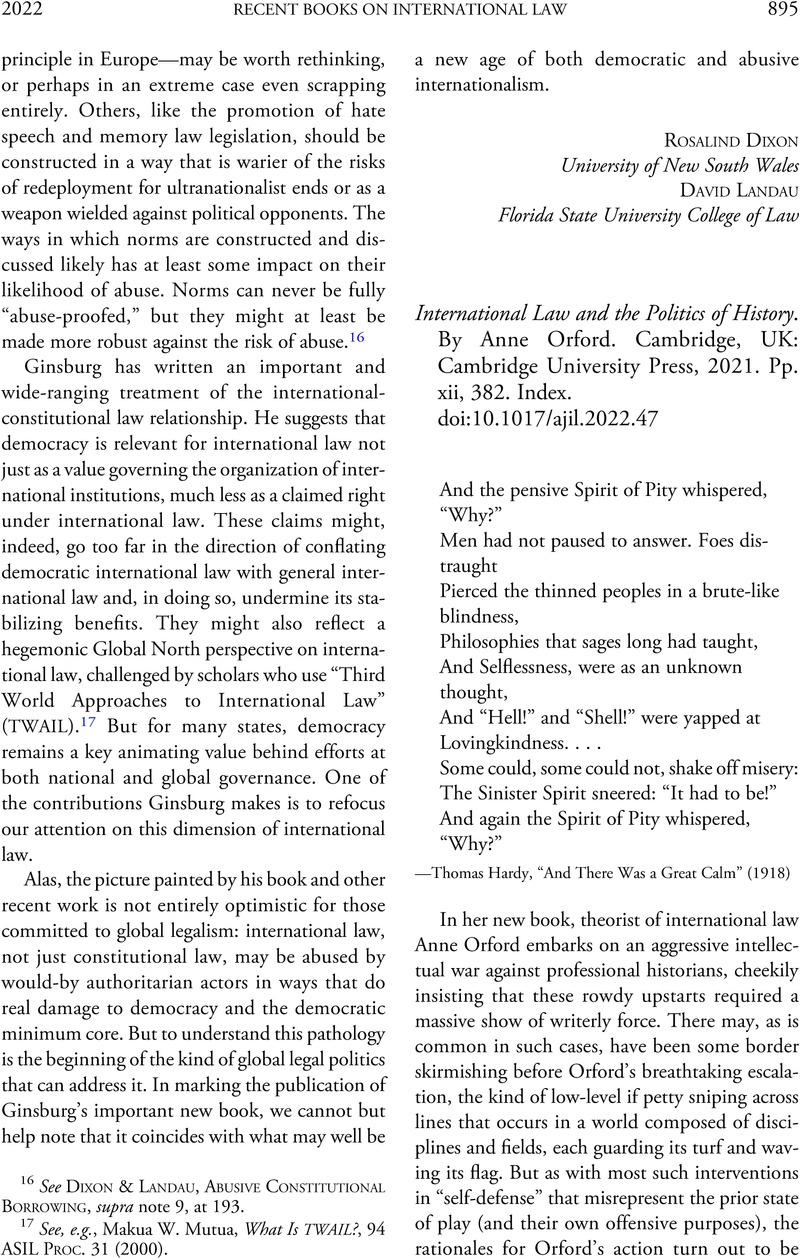No CrossRef data available.
Published online by Cambridge University Press: 27 October 2022

1 See Wheatley, Natasha, Law and the Time of the Angels: International Law's Method Wars and the Affective Life of Disciplines, 60 Hist. & Theory 311 (2021)CrossRefGoogle Scholar for full details and the most productive intervention in the dispute I have seen.
2 See the proceedings in History, Politics, Law: Thinking Through the International (Annabel Brett, Megan Donaldson & Martti Koskenniemi eds., 2021).
3 Benton, Lauren, Beyond Anachronism: Histories of International Law and Global Legal Politics, 21 J. Hist. Int'l L. 7 (2019)Google Scholar.
4 Martti Koskenniemi, The Gentle Civilizer of Nations: The Rise and Fall of International Law 1870–1960 (2001).
5 See, e.g., Jörn Rüsen, Historik: Theorie der Geschichtswissenschaft (2013); for an English-language commentary, see Allan Megill, Jörn Rüsen's Theory of Historiography Between Modernism and Rhetoric of Inquiry, 33 Hist. & Theory 39 (1994)
6 See, e.g., Samuel Moyn, Bonfire of the Humanities, The Nation (Jan. 21, 2015).
7 See, e.g., Lorraine Daston & Peter Galison, Objectivity (2007).
8 Compare Samuel Moyn, History, Law, and the Rediscovery of Social Theory, in History in the Humanities and Social Sciences (Richard Bourke & Quentin Skinner eds., 2022).
9 Koskenniemi, supra note 4, at 494–508.
10 Throughout her book Orford also implies—at times, plausibly so—that Western historians have falsely universalized their own provincial perspectives, lacking the cosmopolitan worldliness of the best international lawyers. But in contrast to Slobodian's comprehensive and deservedly influential reconstruction in German-language primary materials, in International Law and the Politics of History fewer than five of the 1,400 footnotes cite non-English sources, and none directly.